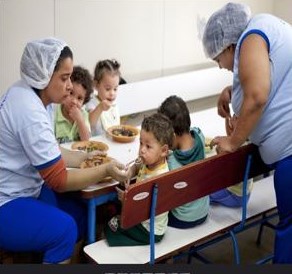
Ministry of Women and Child Development expands childcare through Anganwadi centres for children
In a major boost to working mothers across India, the Ministry of Women and Child Development has approved 14,599 Anganwadi-cum-Crèches (AWCCs) under the Palna Scheme, aimed at providing safe, all-day childcare services. This initiative marks a significant step in formalising childcare responsibilities and expanding the reach of early childhood support services nationwide.
The Palna Scheme, launched on 1st April 2022 under the Samarthya vertical of Mission Shakti, provides day-care facilities to children aged 6 months to 6 years across all states and union territories. The scheme focuses on ensuring child safety, nutrition, cognitive development, immunisation, and overall well-being—irrespective of the mother’s employment status.
Driven by growing female workforce participation, rapid urbanisation, and the rise of nuclear families, the scheme addresses the pressing need for accessible and reliable childcare services. As joint family support systems have diminished, many working women—especially in the unorganized sector—face difficulties in balancing professional commitments with child-rearing responsibilities. The lack of formal daycare options often becomes a key barrier to women’s employment.
To counter this, Anganwadi centres—the world’s largest network of childcare facilities—have now been reimagined to function as AWCCs. These centres offer extended day-care services, ensuring full-day support for children in a safe and nurturing environment. The initiative also reinforces India’s commitment to the UN Sustainable Development Goal 8, promoting “decent work and economic growth,” by allowing mothers to pursue gainful employment free from unpaid care burdens.
During the ongoing 15th Finance Commission cycle (up to FY 2025–26), the Ministry has envisioned the establishment of 17,000 AWCCs across the country. Annual targets are set during Programme Approval Board (PAB) meetings in collaboration with State Governments and UT Administrations, which are encouraged to submit proposals and operationalise new centres. States also share the financial responsibility for implementing the scheme.
This update was shared in the Rajya Sabha by Minister of State for Women and Child Development, Smt. Savitri Thakur, in response to a parliamentary question.

